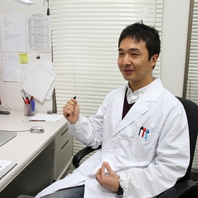![]()
![]()
Research Support Office Research Advancement Division. Tokyo University of Agriculture and Technology
| TEL | +81-42-367-5944 |
|---|---|
| FAX | +81-42-367-5946 |
This program is supported by MEXT’s scientific technology human resource development fee grant, "Program to Disseminate Tenure Tracking System".
Home > Tenured Faculties > Okazaki Shin

Okazaki Shin

| Affiliation | Institute of Agriculture |
|---|---|
| Division | Division of International Environmental and Agricultural Science |
| Research field | Soil and Environmental Microbiology |
| Keyword(S) | Microbiology, Plant nutrition, Biofertilizer |
| Url | http://web.tuat.ac.jp/~okazaki/enindex.html |
| Research experience | ・2004.Apr – 2005.Mar : Postdoctoral fellow (Osaka University) |
|---|---|
| Educational background | ・Tohoku University, Dep. of Agriculture, BSc. 1998年 |
| Awards | |
| Selected papers and publications | * The latest information is shown at the member's website. |
Plants are continually exposed to a huge variety of microbes. These microbes include potential pathogens that induce diseases on plants, and symbionts that benefit plants by supplying various nutrients or conferring beneficial traits such as disease resistance and drought tolerance. To achieve sustainable agriculture it is important to use these beneficial microbes instead of applying large amount of chemical fertilizers and agricultural chemicals.
The work in our laboratory focuses on beneficial soil microbes such as rhizobium, AM fungi and endophytic bacteria. In addition to the conventional analyses, genome analysis and metagenomic analysis using next generation sequencers enables detection of beneficial genetic resources that have not been identified ever. We further analyze molecular interactions between crop plants and those microbes using molecular and biochemical techniques and plant genetics. Based on the theoretical evidence derived from these analyses, we work toward practical use of those beneficial microbes such as bio-fertilizers, microbial inoculants or the development of technologies for soil diagnostics to promote sustainable agriculture.
Tenure track program in TUAT provides a position as an independent investigator in a secured own research space with an abundant start-up fund. In addition, experienced senior researchers could give us advise on research strategy and laboratory management. I think this is ideal environment for young scientists who are starting scientific career.
In soil there are microbes that benefit plants by supplying various nutrients or conferring beneficial traits such as disease resistance. To achieve sustainable agriculture it is important to use these beneficial microbes instead of applying large amount of chemical fertilizers and agricultural chemicals. Newly developed technologies including next generation sequencers lay a path to the new phase of soil microbiology. Using these new technologies, I would like to work toward practical use of those beneficial microbes such as bio-fertilizers, microbial inoculants or the development of technologies for soil diagnostics to promote sustainable agriculture.